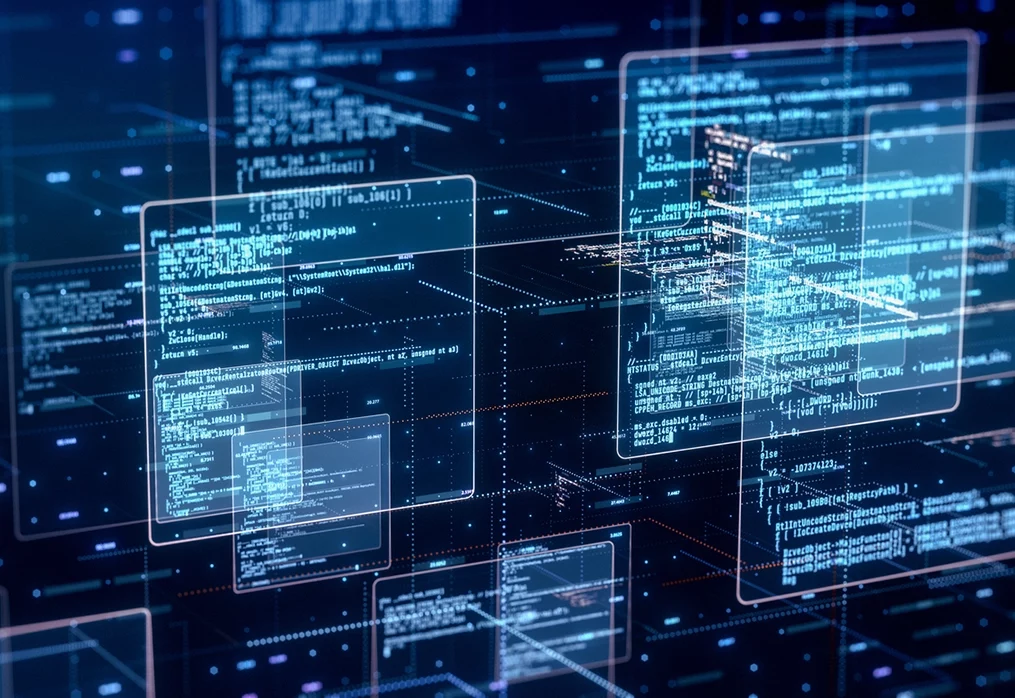How can AI improve the security of accounting data?
In today’s digital age, accounting data security has become a key concern for businesses of all sizes. Discover how Artificial Intelligence strengthens the security of accounting data.
Table of Contents:
- What is Artificial Intelligence and how does it apply to accounting data security?
- How to implement AI in accounting data security?
The proliferation of cyber threats and increased regulations have driven the need for more advanced solutions.
In this context, Artificial Intelligence (AI) emerges as a powerful tool to improve the security of accounting data. In this article, we explore how AI can strengthen the protection of sensitive financial information and ensure the integrity of accounting records.
What is Artificial Intelligence and how does it apply to accounting data security?
Artificial Intelligence (AI) is a field of computer science that seeks to develop systems capable of performing tasks that normally require human intelligence. These systems can learn from experience and adjust to new situations, improving their performance over time.
In the context of accounting data security, AI presents itself as an innovative solution to strengthen the protection of financial information and prevent cyber threats.
The application of AI in accounting data security covers several key areas, such as anomaly detection, because it has the ability to analyze large amounts of financial data and patterns to identify anomalous behavior, it is able to detect fraudulent or suspicious activity that might go undetected by traditional methods. AI can generate early warnings, which helps companies address and prevent security issues before they become real threats.
Also, AI systems can automate security processes, such as continuous log analysis and real-time detection of suspicious activity. This streamlines threat response and minimizes the risk of human error.
You can optimize encryption by identifying the most sensitive data and applying appropriate levels of security. It can also monitor access to data and ensure that only authorized individuals can access or modify financial information.
By analyzing historical patterns and using machine learning algorithms, AI can predict potential threats and vulnerabilities in the security of accounting data. This allows companies to take preventive measures and improve their protection strategies.
How to implement AI in accounting data security?
Effective implementation of Artificial Intelligence (AI) in accounting data security requires a sound strategy and a thorough understanding of the organization’s specific needs. Here’s a step-by-step approach to incorporating AI into financial data protection:
- Needs assessment:
Understanding the security challenges facing the enterprise is crucial. Identifying the types of sensitive data and potential risks will help determine which aspects of security can be improved with AI.
- Selection of AI technologies:
There are various AI technologies such as machine learning, natural language processing and predictive analytics. Select the tools that best suit your security needs and that can analyze and detect patterns in accounting data.
- Data collection and preparation:
Data quality is essential to the success of AI. It gathers and prepares relevant financial data, ensuring its cleanliness and proper structure. The more high-quality data, the better the AI performance.
- Model training:
It uses the collected data to train AI algorithms. This involves allowing the AI to learn from past data to detect patterns and anomalies in the future. Adjust and refine the model as needed.
- Anomaly detection:
Employ AI to continuously monitor financial transactions and patterns for unusual behavior. AI can identify fraudulent activity, error detection and other anomalies that might go undetected by traditional systems.
- Detección de anomalías:
Configure AI to take automatic action in response to certain events, such as blocking suspicious transactions or notifying security officers. This streamlines threat response and minimizes impact.
- Constant updating:
Cyber security is a constantly evolving field. Regularly update your algorithms and AI models so they can adapt to new threats and attack patterns.
- Supervision and maintenance:
Human oversight is essential to ensure that AI is working properly and does not generate false positives or negatives. Maintain a team of experts who can review and adjust AI performance according to changing circumstances.
- Staff training:
Make sure your team understands how AI works and how to use it for accounting data security. Provide training so they can take full advantage of the technology’s capabilities.
Successful implementation of AI in accounting data security has a significant impact on the protection of sensitive financial information. By adopting a comprehensive and adaptive strategy, companies can strengthen their cyber defenses and ensure the integrity of their accounting records in an increasingly complex and threatening environment.
In the future, the Conciliac EDM platform will use technologies such as artificial intelligence. Currently, this powerful tool is based on machine learning to ensure the effectiveness and agility of data processes that, if done in the traditional way, would require a greater investment of time and human resources.
We know that when it comes to the management and safeguarding of a company’s financial data, errors can lead to very serious conflicts for the company, which is why the best way to ensure sensitive data management is through exponential and accurate technologies that also enable proper decision making.
Do you want to know how Conciliac EDM platform works? Request a demo now.
